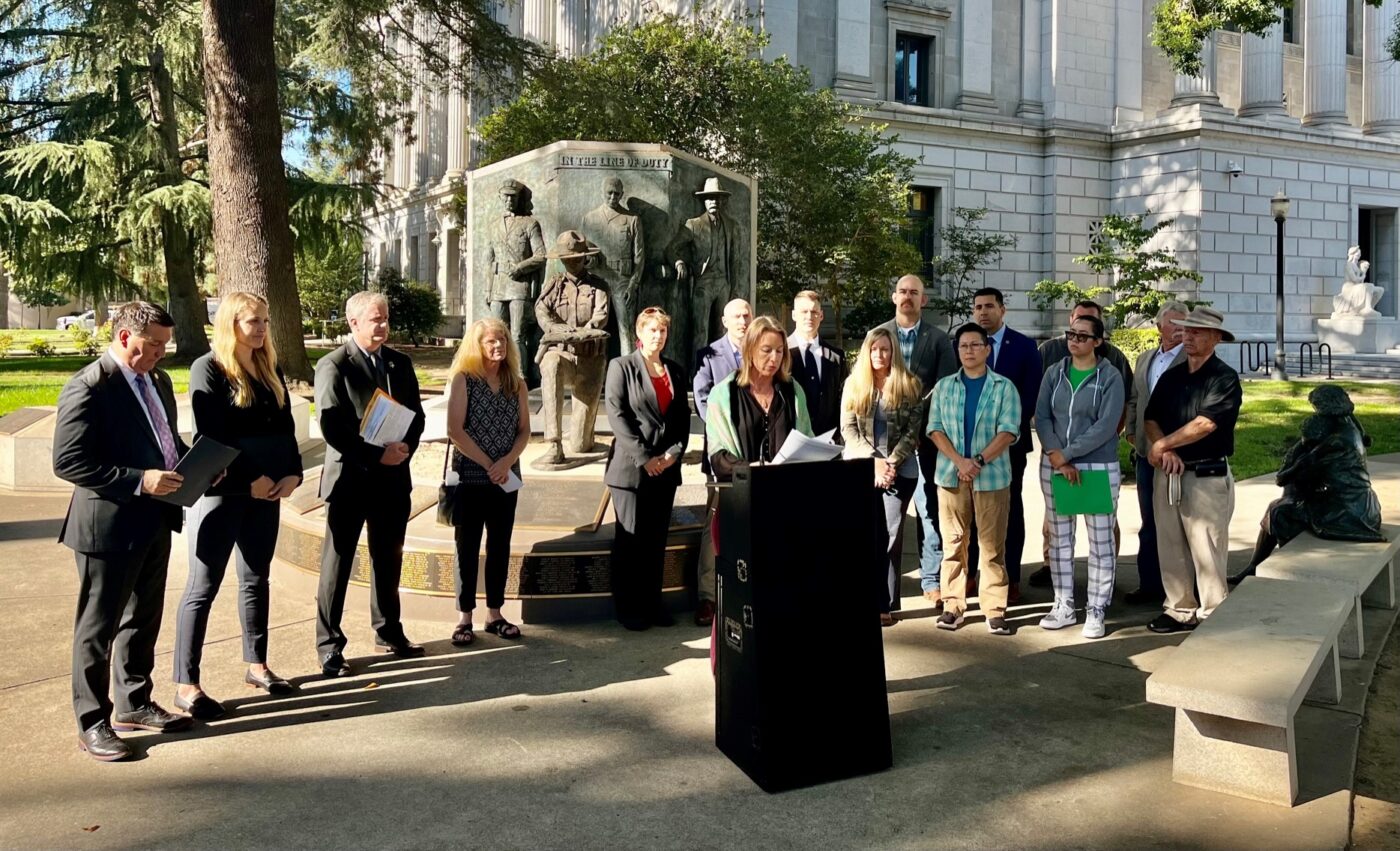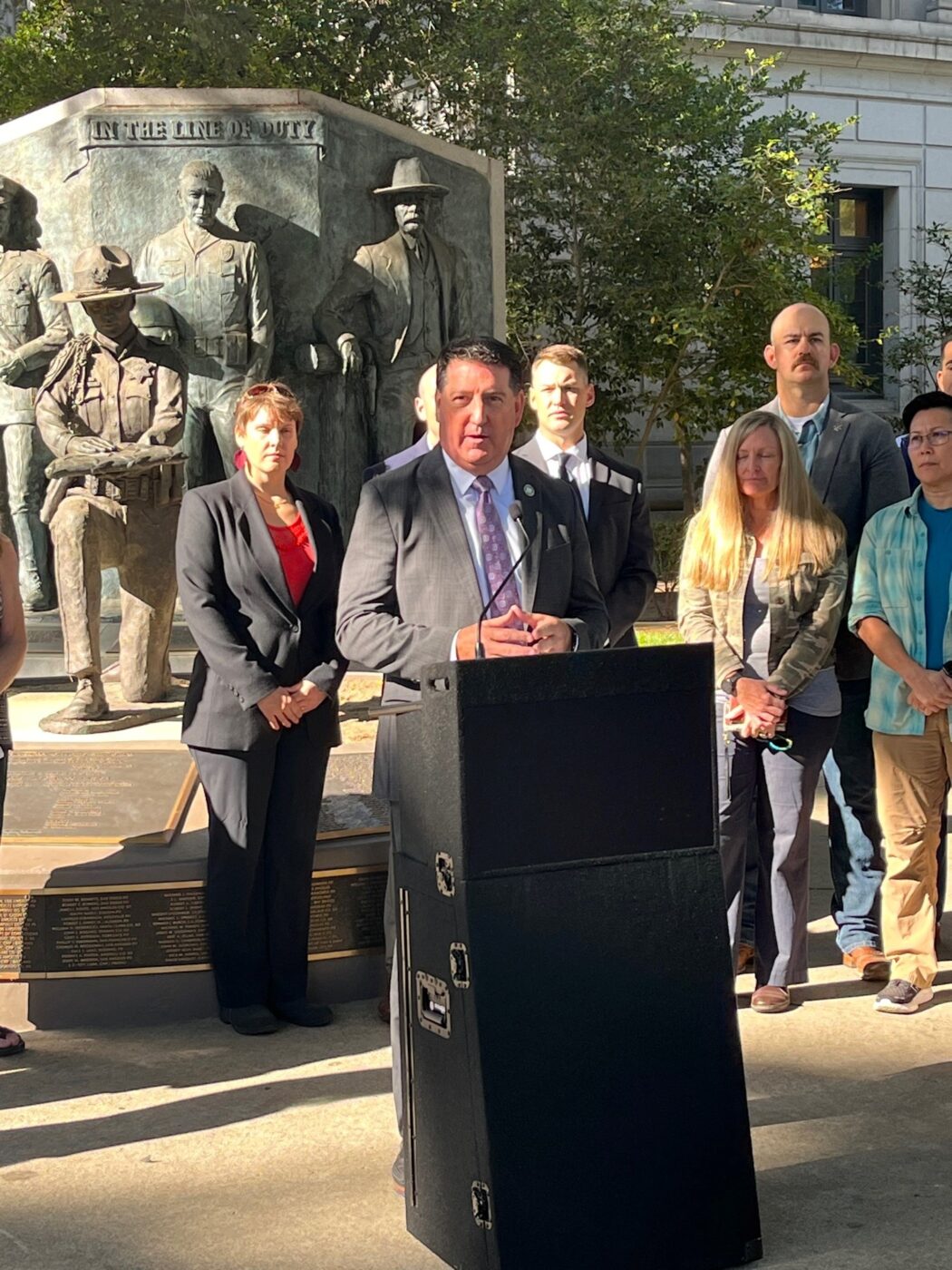“We respectfully request Governor Newsom to sign into law, SB 391, which would remove the burden from the rangers and wardens who are diagnosed with skin cancer from proving the cancer is work-related. These law enforcement officers are continually out in the sun and don’t get the same Workers’ Comp protection as their peace officer peers throughout the state.” – CSLEA President Alan Barcelona

Sen. Catherine Blakespear speaking at press conference
SACRAMENTO – They are as outdoors as any law enforcement officer, maybe more, so why are California State Parks rangers and California Department of Fish and Wildlife wardens excluded from a skin cancer presumption when it applies to Workers’ Comp?
That’s what Sen. Catherine Blakespear (D-Encinitas) and Assemblymember Tim Grayson (D-Concord) want to know and why they are leading the effort calling on Governor Gavin Newsom to sign SB 391 into law when it reaches his desk.
“Park rangers and wildlife officers protect California’s beautiful lands, waters, flora and fauna, but their job carries risk,” Blakespear said. “Like other peace officers, every day they put their lives on the line. The risk comes not only from the possibility of dangerous conflict but also from the hazard of spending most of their days outdoors being exposed to harmful UV rays from the sun. They deserve the same protection as every other law enforcement officer and lifeguard.”
SB 391 would establish a rebuttable presumption that skin cancer developed by California’s wildlife officers and park rangers is associated with excessive exposure to the sun during their employment, thereby removing any barriers to receiving workers’ compensation coverage for skin cancer treatment. The same rebuttable presumption currently exists for lifeguards employed by cities or counties and the state Department of Parks and Recreation and by all other classes of peace officers.
“California’s wildlife officers and park rangers protect our state’s natural resources, and it is only fair that California provides them the necessary protections from the risks associated with their service,” said Grayson, “I am proud to support SB 391, and am thankful for Senator Blakespear’s leadership on this important issue.”

Rosemary Weingarten
Speaking at a press conference, Rosemary Weingarten, widow of Wildlife Officer Alan Weingarten who died from skin cancer said, “The greatest threat to Alan’s life from his patrol duties was not a poacher with a warrant, but his occupational exposure to the sun. The Workers’ Comp system denied my husband’s skin cancer claim. They failed him. We had to take them to court. Unfortunately, Alan passed away long before the court settled his case. During the time my husband was fighting for his life, he was also fighting with Workers’ Comp.”
Authored by Blakespear, SB 391 is co-sponsored by the California State Law Enforcement Association (CSLEA) and the California Fish and Game Supervisors and Managers Association (CFGWSMA) and has support from 18 organizations, including the Peace Officers Research Association of California and The Nature Conservancy. There is no known opposition, and the bill has passed the Legislature unanimously so far.
Only 50 percent of the workers’ compensation claims for skin cancer treatment for wildlife officers and park rangers are approved. Many officers and their families have to fight for workers’ compensation coverage or go years without it, creating more stress and expenses while they are battling cancer.
California wildlife officers and state park rangers often work 10 to 12 hours per day, and many of those hours are spent outside in the sun. For career wildlife officers and park rangers, this amounts to decades outside – far more than the average worker.
Also supporting SB 391 are: Audubon California, Defenders of Wildlife, Monterey Bay Aquarium, National Wildlife Federation, Endangered Habitats League, Oceana, California Waterfowl Association, Mountain Lion Foundation, Planning and Conservation League, California Wildlife Officers Foundation, Friends of Fish and Game, the California Fish and Game Wardens Association, and more than two dozen active and retired California wildlife officers.




